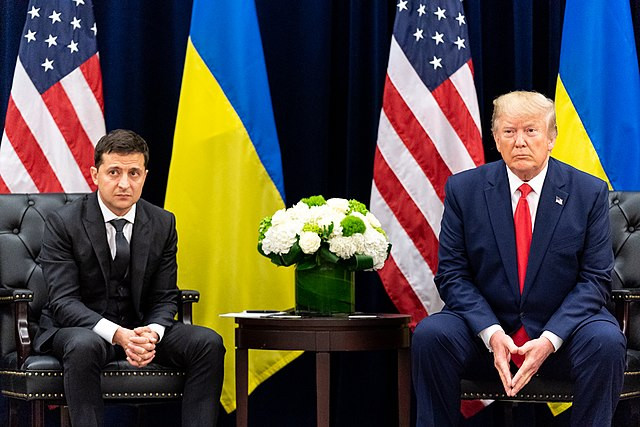Sharp divisions have emerged between the United States and its European and Ukrainian allies over the path to a potential ceasefire in Ukraine, as newly obtained documents reveal deep disagreement over territorial concessions, sanctions, and security guarantees. The split comes as President Donald Trump intensifies efforts to broker a deal ahead of his self-imposed timeline to end the war within his first 100 days in office.
Two documents obtained by Reuters-one reflecting U.S. proposals delivered by Trump's envoy Steve Witkoff, and the other a counterproposal developed by Ukrainian and European officials-outline the gap between the sides. Talks took place in Paris on April 17 and in London on April 23.
According to sources, the U.S. document calls for de jure recognition of Russia's annexation of Crimea and de facto acknowledgment of its control over parts of southern and eastern Ukraine. In contrast, the European-Ukrainian counterproposal defers any territorial discussion until after a "full and unconditional ceasefire in the sky, on land and at sea."
"Crimea will stay with Russia. And (Ukrainian President Volodymyr) Zelenskiy understands that," Trump told Time magazine in remarks published Friday. "It's been with them long before Trump came along."
The Witkoff plan proposes Ukraine renounce its NATO aspirations and instead receive unspecified "robust security guarantees" from Western states. The opposing document demands a binding U.S. commitment modeled after NATO's Article 5, with no limits on the size or deployment of Ukraine's military or that of allied forces on its soil.
On sanctions, the U.S. draft recommends lifting restrictions imposed after Russia's 2014 annexation of Crimea as part of the peace deal. The Ukrainian-led plan stipulates that sanctions should only be gradually eased after a verified sustainable peace, with provisions to reimpose them if Russia violates terms.
The counterproposal also calls for full compensation for war damage, specifically from Russian assets frozen abroad. The U.S. version omits a source for reparations but affirms financial compensation would be included.
Additional provisions in the European-Ukrainian text demand the return of all deported or displaced Ukrainian children and reference the implementation of a minerals deal and comprehensive post-war reconstruction.
Amid mounting concern in Europe, diplomats have expressed alarm that Washington's approach could set a precedent for conflict resolution through territorial concession. "If one country in Europe is forced to give up parts of its legal territory... no country in Europe or elsewhere can feel safe, NATO or no NATO," a European diplomat told CNN.
Despite the pushback, U.S. officials framed the talks as constructive. U.S. Special Envoy Keith Kellogg said the London meetings were "candid, positive and productive." A European official added, "We managed to convince the Ukrainians to convince themselves to get in a more U.S. administration-friendly position."






